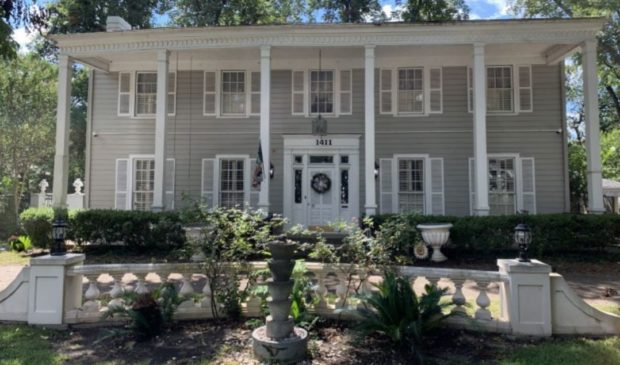Photo by city of Austin: 1411 Ethridge Ave.
Landmark commission experiments with new postponement tool
Tuesday, November 30, 2021 by
Kali Bramble The Historic Landmark Commission is taking a fresh approach to resisting demolition, opting to indefinitely postpone several cases at its Nov. 15 meeting.
After consulting with the city’s legal department, staffers recommended using the new tool in cases where applicants oppose historic zoning but are willing to negotiate alternatives to demolition. Commissioners elected to use this approach for two historic homes, one at 1601 Cedar Ave. and the other at 1411 Ethridge Ave.
“Indefinite postponement is not a tool we have been using, but it’s one we have learned of and will be making more use of going forward,” Historic Preservation Officer Elizabeth Brummett said.
Applicant Garrett Hill, who appeared before the commission last month, has met significant resistance from the surrounding neighborhood and city staff over his efforts to tear down his circa-1915 home on Cedar Avenue. Noting its grandiose transitional style and ties to the working-class Blocker family, who maintained the house for much of the 20th century, the commission unanimously voted to initiate historic zoning.
Seeking to prevent historic landmark designation, Hill has retracted his application for demolition to pursue less controversial remodeling options. With no imminent action on the horizon, staff felt that indefinite postponement was an appropriate response.
“What this will do is simply allow the clock to time out after 180 days,” Brummett explained. “So if another demolition request or partial demolition request were to come forward, staff would see that and bring it back to the commission to reconsider initiating historic zoning.”
The new tool came in handy once more to resolve the case of 1411 Ethridge Ave. Rebecca Burrisk, one of the home’s owners, appeared before the commission to explain that the contract instigating the pending application for tearing down the 1939 home had fallen through.
“The property is in pretty bad condition, and I personally think it’s ready for demolition, but I don’t know what the contract we enter on the property will want to do,” Burrisk said.
While staffers had previously recommended initiating historic zoning, the uncertainty surrounding demolition made the case an ideal candidate for indefinite postponement. If, in 180 days, the owners do not return to the commission with an updated request, the case will time out and will require resubmission for future action.
In the meantime, Commissioner Witt Featherston suggested that the Historic Preservation Office be wary of the case entering the territory of neglect.
“It might be nice to have a refresher from staff on what are the repercussions of demolition by neglect,” Featherston said. “Since the house is currently in some state of disrepair, we may be putting ourselves into a future position.”
Despite the longer timeline allowed by indefinite postponement, staffers assured the commission that the case would be on their radar. “There are several prospective landmarks that we are actively monitoring … we can certainly make note of that concern and bring more information to a future meeting,” Brummett said.
The use of indefinite postponement demonstrates some promise in providing more flexibility for a commission that has historically felt constrained by a limited set of tools. The Historic Landmark Commission will reconvene on Dec. 13.
The Austin Monitor’s work is made possible by donations from the community. Though our reporting covers donors from time to time, we are careful to keep business and editorial efforts separate while maintaining transparency. A complete list of donors is available here, and our code of ethics is explained here.
You're a community leader
And we’re honored you look to us for serious, in-depth news. You know a strong community needs local and dedicated watchdog reporting. We’re here for you and that won’t change. Now will you take the powerful next step and support our nonprofit news organization?






